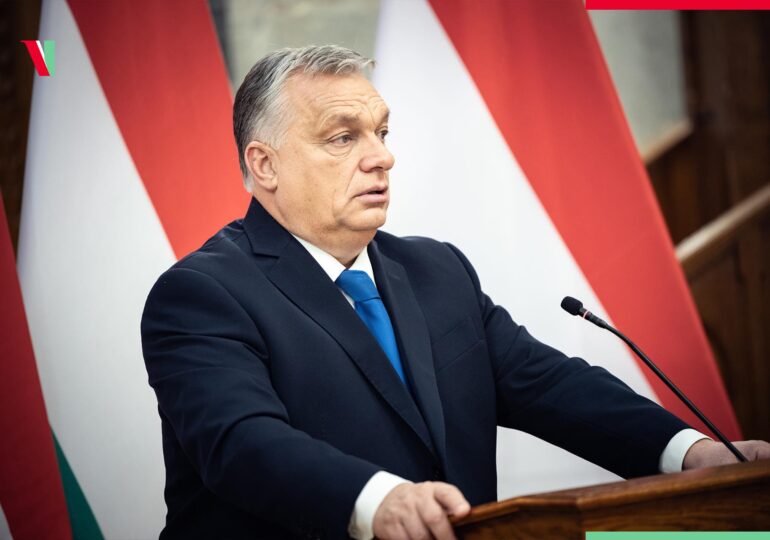Hungarian Prime Minister Viktor Orban stated, on Saturday, at the opening of his speech at the Summer University in Baile Tusnad, that he did not receive „diplomatic instructions” from Bucharest on what to say and what not to say at Tusvanyos, and he talked about the meeting he had with Romanian Prime Minister Marcel Ciolacu.
„The first good news is that there wasn’t as much fuss made as last year, I did not receive any diplomatic instructions from Bucharest on what to say and what not to say, but I did receive an invitation for a dialogue at the prime minister level and this happened,” Orban said, quoted by Agerpres.
He reviewed the topics discussed during the meeting with Marcel Ciolacu and expressed hope that in the autumn there will be a vote for Romania's accession to the Schengen area.
"And if we review what has happened since then, indeed we have broken some records in terms of figures, economic exchanges. Romania is an important partner, if not the most important economic partner for Hungary. We discussed a high-speed train and we also discussed Romania's accession to the Schengen area.
I said that in the autumn we will put Romania's accession to the Schengen area on the agenda and, if possible, and we hope it is possible, we will have a vote in favor of Romania's accession to the Schengen area," Orban said.
At Baile Tusnad, Orban Viktor delivers his traditional speech, starting from the theme of this year's Summer University - "On the right path."
Ciolacu welcomed Orban on Friday morning at Vila Lac, alongside Kelemen Hunor, the president of the UDMR, at a round table with a white tablecloth, where there were a few croissants, water, and juice.
Ciolacu stated that he had a "pragmatic" discussion with Orban and they planned a high-speed railway line between Budapest and Bucharest, which the press had learned from sources was also discussed last year, at a seemingly similar meeting.
Orban has upset EU leaders even more
The Hungarian Prime Minister recently upset EU leaders even more with his so-called "peace missions" at the beginning of July - meeting with Russian President Vladimir Putin in Moscow, with Chinese leader Xi Jinping in Beijing, and more recently, with former US President Donald Trump at his Mar-a-Lago residence in Florida.
Orban tried to present himself as a peacemaker in the conflict in Ukraine, but his position is at odds with the majority of EU leaders, who have committed to unequivocally support Ukraine in its efforts to repel Russia's military effort.
In his letter to these leaders, Orban stated that, during the meetings, there was a "general observation" that the "intensity of the military conflict" in Ukraine "will escalate radically in the near future."
Subsequently, the EU decided how to boycott Viktor Orban. The upcoming meetings of EU foreign and defense ministers, scheduled for August, will be moved from Budapest to Brussels. However, Hungarian Foreign Minister Peter Szijjarto expressed his indifference to this decision. Instead, Hungary will block the next tranche of military aid offered to Ukraine through the "European Peace Facility" until Kiev unblocks the deliveries of oil from the Russian company Lukoil to Hungary and Slovakia.

